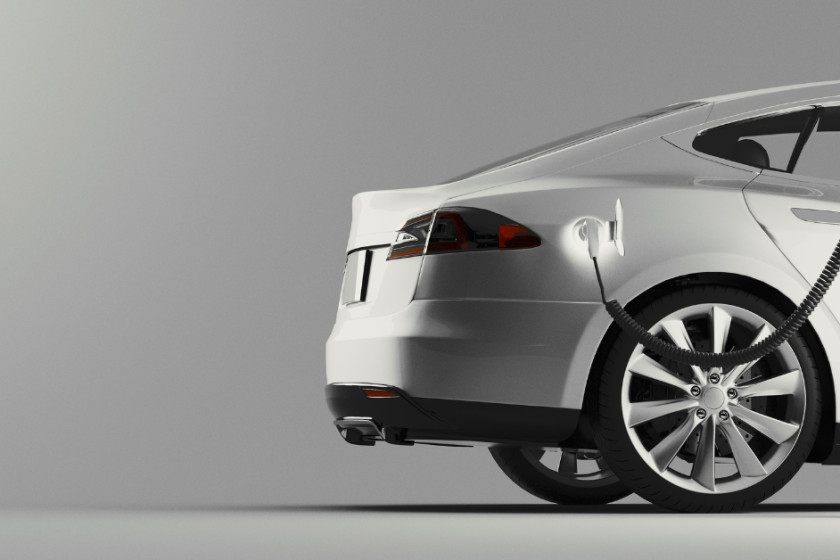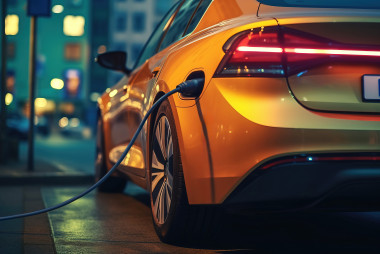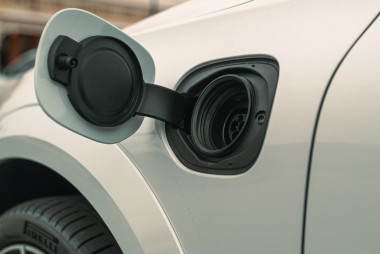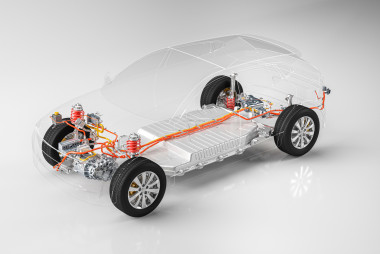EV CHARGING INCENTIVES IN EUROPE
#teltonikaenergy, #evcharging
Many countries around the world have introduced incentives to speed up the adoption of electric vehicle technology. In most cases, this involves subsidies for purchasing the electric vehicles themselves, but this can also be extended to support installing an EV charging solution.

What does this entail, though, and in which countries are EV home charging incentives available?
This article will take a quick tour around Europe, breaking down what is on offer in some of the larger countries to help you make sure that you do not miss out when putting together your home EV charging setup. With this information in mind, you will be ready to hop on the grid and join the EV adoption boom with minimal impact on your wallet.
GERMANY
As expected, Germany is ahead of the curve when it comes to EV adoption. A €900 grant is available at the national level to any citizen to purchase and install a home charging setup, meaning that if you are in Germany and looking to join the EV revolution, you are in luck. There is also a range of regional subsidies and incentives to help speed along EV adoption, so before booking your installation, it is worth taking a deeper dive into the options specific to your local area.
FRANCE
Like Germany, France is renowned the world over as a developed and well-governed country that we would expect to see at the front of the pack when it comes to EV adoption. It is no surprise, then, that France also has some schemes incentivizing individual EV charging setups. All taxpayers who own, rent, or occupy detached housing free of charge, can benefit from a €300 tax credit for the purchase and installation of an EV charging system. Meanwhile, for individuals living in collective buildings and willing to install their own EV charging station in their private parking space, the program can cover up to 50% of the amount, excluding VAT of supplies, equipment, and work within the limit of €960 per charging point.
UNITED KINGDOM
Still part of Europe – geographically, at least – the UK lags behind the rest of the continent in this area. A grant of up to £350 is available for residential EV charging solutions – almost a third of the value of its European counterparts. There are also some foibles and specifics to this scheme that might disqualify otherwise worthy applicants, so consulting the link provided and studying it in detail is important so as not to miss out.
ITALY
Back in Europe proper, Italy’s offering when it comes to home EV charger support is more than generous, providing up to €2,000 to early adopters. This subsidy comes in the form of a refund and is qualified in one of two ways. The first offers a 50% return of the total amount if this is an isolated EV charger installation. If the EV charger is part of a wider renovation effort to significantly increase the energy efficiency and green credentials of your home, however, then the grant rises from 50% to a staggering 110% of the value of the work, meaning that you can actually be paid for EV adoption – as if you needed another reason!
SPAIN
Grants in Spain for EV charging installation are murky water, as Spain's semi-federal system means that they tend to be administered regionally. This means that if you live in Valencia, for example, you are likely to have completely different options than if you were in Seville. However, thanks to its Moves II plan, the Spanish government has allocated funding at the national level for EV home charger incentives, meaning that, in all likelihood, there will be significant support available. Most often, this amounts to 30–40% of your EV solution's purchase and installation cost, extending all the way up to a (rather optimistic) €100,000!
SWEDEN
One might assume that Sweden would be straightforward, supportive, and easy to access when it comes to support for home EV charging stations. One would be absolutely correct in that assumption, as Sweden offers the 'Charge the Car' grant of up to 15,000 SEK – around €1,350. This grant covers 50% of the cost of any home EV charger installation and conspicuously lacks the confusing minutiae of other schemes. This makes it easy to apply for, hassle-free, and a sure bet when it comes to supercharging EV adoption in Sweden.
IRELAND
Offering a grant of up to €600 per installation, Ireland's EV charging incentives might seem at first glance a little, shall we say, stingy compared to their European counterparts. However, it is crucial to bear in mind that this is not a percentage contribution. What this means is that where in other countries the total amount may potentially be ludicrously high, in reality, you would only receive €300 of support for a €600 job. In Ireland, however, if your installation is below the €600 mark, then the financial support on offer effectively makes it free!
FINLAND
Finland, typically known as a wealthy high-technology country, surprisingly averages in the age of cars. The average age of registered passenger cars in Mainland Finland was 16 years. In a country of very long distances combined with high pricing and taxation in the car industry, adoption from petrol cars to electric cars has not been easy at all.
However, the government is covering the costs of purchasing electric vehicles and EV charging equipment in different ways, depending on who is the buyer or end user. The Housing Finance and Development Centre of Finland (ARA) is supporting companies that are building charging stations for the use of employees, with the amount of €750 per device that meets the subsidy requirements. (Type-2, minimum of 3,7kW, load balancing). ARA also covers charges of chargers for housing communities up to 35%.
Employees with leasing cars or other car benefits can charge at home or at work tax-free - the requirement for this benefit is to have an EV charger with smart technology - the employee needs to report their total charging through an app or an energy meter.
Funds earmarked to encourage consumers to buy electric cars ran out already in October 2022, and now the government is in a hurry to decide how to continue funding to achieve the ambitious goal of 700 000 electric cars in traffic for the year 2030.
ALL ABOARD
Incentives are one of the most meaningful and effective ways to boost EV adoption for governments around the world. After all, most people are not held back by their conscience regarding the adoption of EV technology but by their wallets. By taking the time to research the support your government or region offers for EV home charging station installation, you can save yourself hundreds or even thousands of euros, allowing you to hop on board the EV train and future-proof your life.
While this article has covered some of the larger European countries, it is important to stress that even if your nation does not appear on the list above, there is likely to be a raft of measures you can access at any time. Smaller countries such as Lithuania, Austria, and Luxembourg are as enthusiastic in providing support – sometimes even more so – than the larger nations, so it is really worth digging into what is on offer, saving yourself money, and helping your country to achieve the dream of large-scale nationwide EV adoption.


